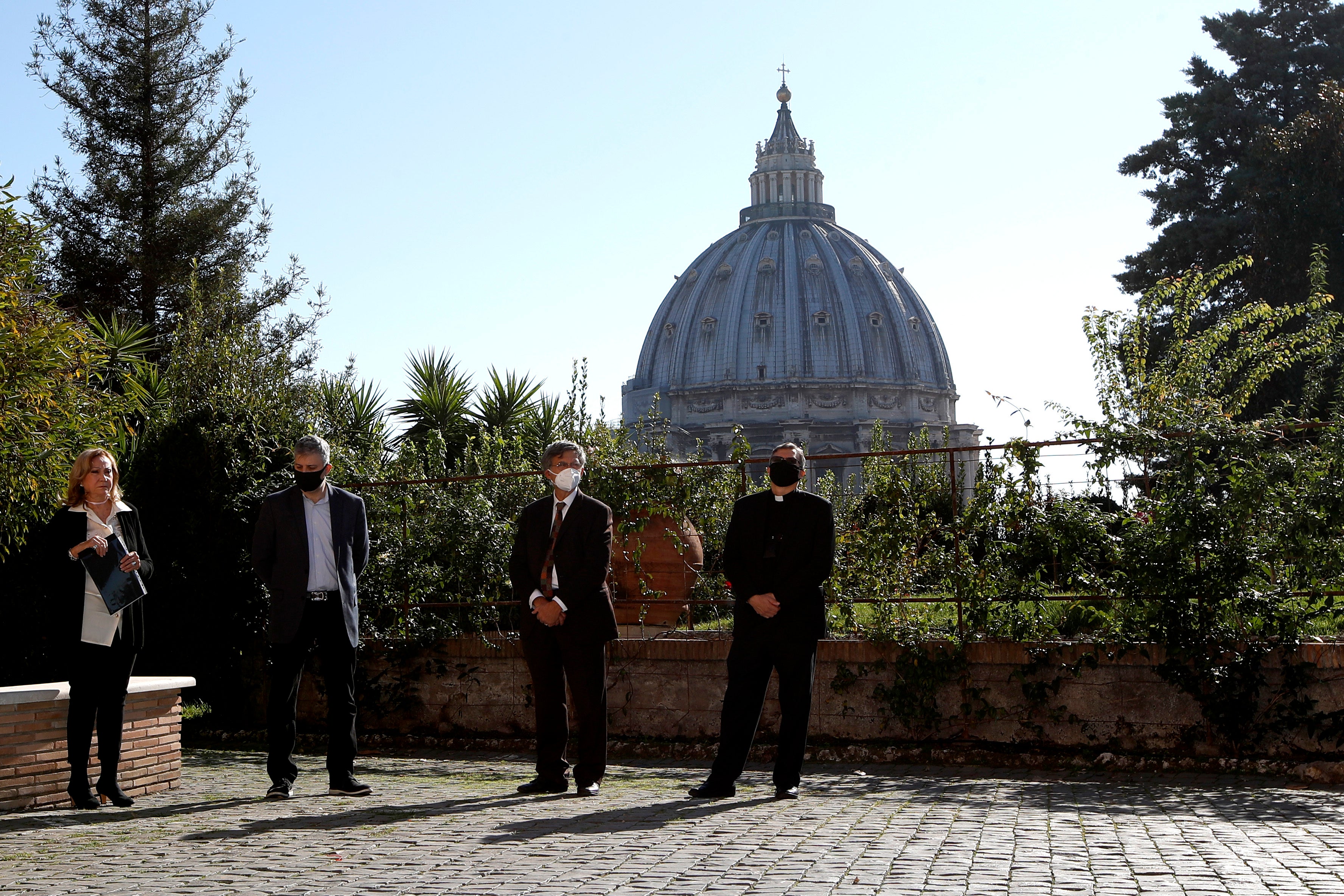Vatican breaks silence, explains pope's civil union comments
The Vatican says Pope Francis’ comments on gay civil unions were taken out of context in a documentary that spliced together parts of an old interview, but it still confirms Francis’ belief that gay couples should enjoy legal protections

The Vatican says Pope Francis’ comments on gay civil unions were taken out of context in a documentary that spliced together parts of an old interview, but still confirmed Francis’ belief that gay couples should enjoy legal protections.
The Vatican secretariat of state issued guidance to ambassadors to explain the uproar that Francis’ comments created following the Oct. 21 premiere of the film “Francesco,” at the Rome Film Festival. The Vatican nuncio to Mexico, Archbishop Franco Coppola, posted the unsigned guidance on his Facebook page Sunday.
In it, the Vatican confirmed that Francis was referring to his position in 2010 when he was archbishop of Buenos Aires and strongly opposed moves to allow same-sex marriage. Instead, the former Cardinal Jorge Mario Bergoglio favored extending legal protections to gay couples under what is understood in Argentina as a civil union law.
While Francis was known to have taken that position privately, he had never articulated his support as pope As a result, the comments made headlines, primarily because the Vatican’s doctrine office in 2003 issued a document prohibiting such endorsement. The document, signed by Francis' predecessor as pope, says the church’s support for gay people “cannot lead in any way to approval of homosexual behavior or to legal recognition of homosexual unions.”
The recent uproar gained even more attention because it turned out director Evgeny Afineevsky misled journalists by claiming Francis had made the comments to him in a new interview. A week before the premiere, when he was asked about the civil union comments, Afineevsky told The Associated Press that he had two on-camera interviews with the pope. In comments to journalists after the premiere, he claimed that the civil union footage in question came from an interview with the pope with a translator present.
It turned out, Francis’ comments were taken from a May 2019 interview with Mexican broadcaster Televisa that were never broadcast. The Vatican hasn’t confirmed or denied reports by sources in Mexico that the Vatican cut the quote from the footage it provided to Televisa after the interview, which was filmed with Vatican cameras.
The guidance issued by the secretariat of state doesn’t enter into the issue of the cut quote or the fact that it came from the Televisa interview. It says only that it was from a 2019 interview and that the comments used in the documentary actually spliced together parts of two different responses in a way that removed crucial context.
“More than a year ago, during an interview, Pope Francis answered two different questions at two different times that, in the aforementioned documentary, were edited and published as a single answer without proper contextualization, which has led to confusion," said the guidance posted by Coppola.
Bookmark popover
Removed from bookmarks